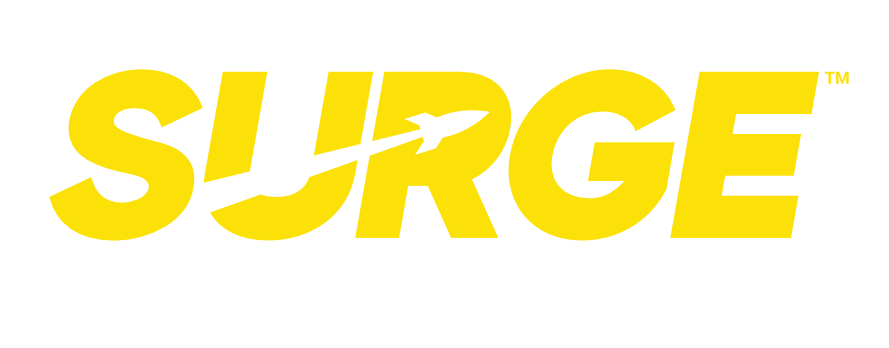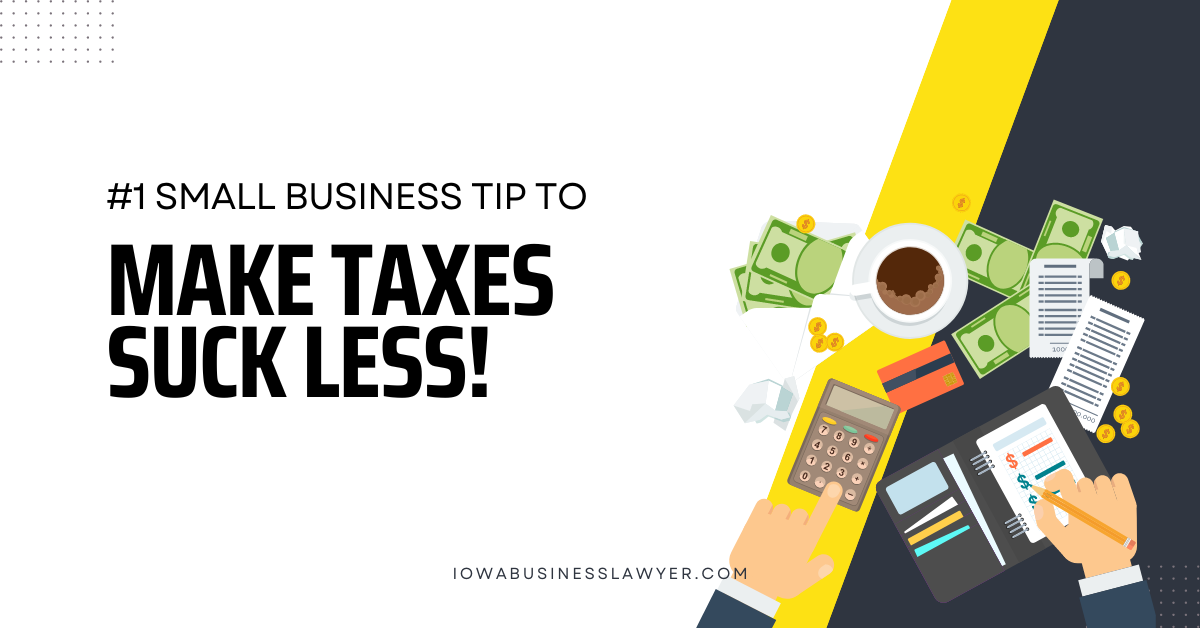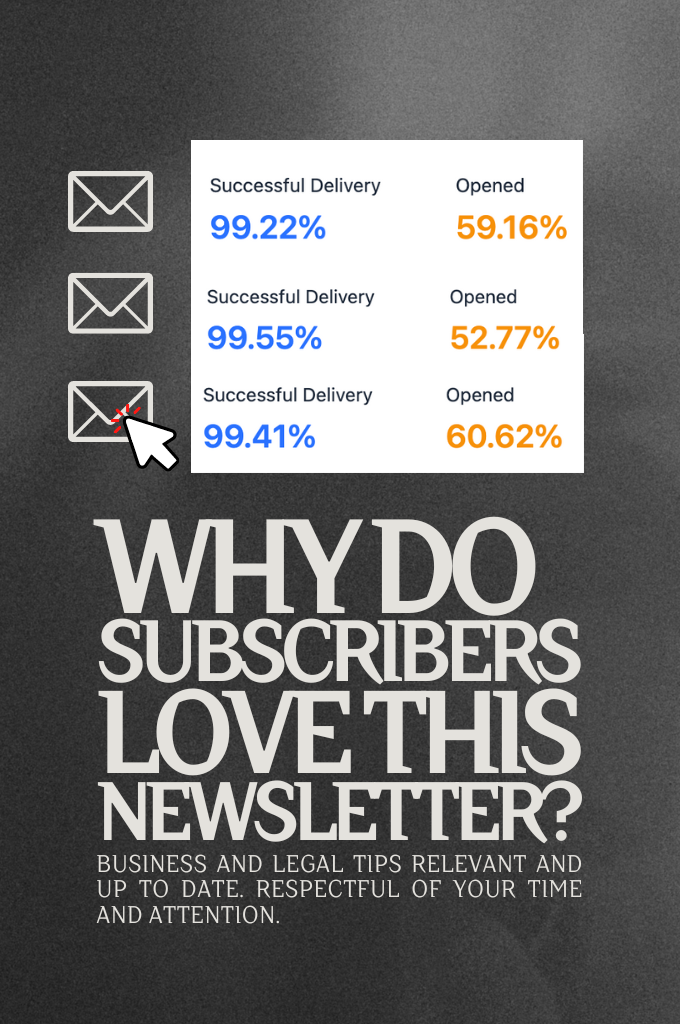Make Taxes Suck Less: 4 Practical Tips for Small Business Owners
Tax planning can be overwhelming. If you’re wondering what taxes a small business has to pay, which deductions my business can claim, and other similar questions, you’re not alone.
One article published by Forbes said, “Of the top ten most burdensome problems small business owners report, four are tax related.” So it is no wonder that tax season can be complicated and overwhelming, especially for small business owners who manage their own finances to keep operation costs low.
Is there a simple solution?
Before we get into the details, we want you to know that talking with a tax professional about business finances is a good choice and can provide you with a lot of helpful strategies. A local CPA who understands the challenges faced by small businesses helped us formulate guidelines to help you get through the complexities of tax season. In this blog post, we will explore these actionable tax strategies to give you less stress and streamlined processes for tax-related tasks. Follow the tips, and get back to focusing on business growth instead of fearing the unknown.
Checkout four tax strategies we recommend small business owners use to successfully manage business taxes.
1. Organize your finances.
Effective financial organization during the startup and growth phases of your business is key to navigating tax season smoothly. By establishing a systematic approach to financial recording, you can save time and avoid potential errors. Here are a few options. As you read through them, ask yourself which of the following you could use for your small business taxes.
- Maintain Separate Business Accounts: Open a dedicated bank account for your business to separate personal and business finances. This encourages accurate record-keeping and simplifies tax preparation.
- Implement a Digital System: Utilize accounting software or cloud-based tools to track income, expenses, and invoices. These tools automate calculations, reduce manual errors, and facilitate seamless data entry. Not all small businesses need accounting software, but our tax expert highly recommends using even the simplest bookkeeping solution or software to make “your tax season a much smoother operation”.
- Keep Updated Records: One of the WORST ways to keep records for taxes would be to throw all your business’s financial documents into one huge shoe box – every receipt, statement, and financial paper. Obviously, that would be a mess. We don’t recommend doing that. Planning for taxes does take a little organizational effort, but the payoff means less of a burden during tax season. If you decide to maintain well-organized records of financial transactions, receipts, and relevant documentation from the beginning, you’ll have less stress, plain and simple. So create organized and up-to-date digital or physical folders to store these records for easy retrieval during tax season.
2. Understand how to reduce your taxable income.
If you’ve ever wondered how to reduce taxes and whether using deductions is a good tax solution, the short answer is: yes. Increasing your tax deductions is important for optimizing your tax liability.
But sending money to just avoid taxes may not be the smartest move. If you do have to spend money, definitely get the tax deduction.
As you add expenses to your business and report those as write-offs (deductions), you also lower your overall taxable income by the same amount. Therefore, you will only be taxed on your income after deductions. This saves you money.
For example, one business expense that can be written off is advertising fees. If your business uses paid advertising for promotions, you can list that expense as a write-off. Buying brand new vehicles is another way some businesses increase their tax deductions and decrease their taxable income. Other examples include office supplies, equipment, advertising costs, and professional services such as legal and accounting fees.
What expenses can your business write-off? Does your business qualify for any of the things in this list of business expenses?
- Employee Deduction: If you have employees, the money you pay them can be a write-off for your business.
- Home Office Deduction: If you have a designated space in your home exclusively used for your business, you may qualify for a home office deduction. Consult a tax professional to find out what deductions apply to your home.
- Mileage Deduction: If you use your personal or company vehicle for business purposes, keep track of your mileage! The IRS assigns a standard mileage rate to each mile traveled for business. This rate is calculated in cents per mile and can add up quickly if you travel a lot for work.
By taking advantage of eligible deductions, you can reduce your taxable income and potentially save a significant amount. To learn more about how write-offs work, checkout this short video with our tax expert.
3. Discover the benefits of professional tax guidance.
While it’s admirable to handle your business taxes independently, seeking professional help can save you time, money, and potential headaches.
A tax professional will provide valuable insights, ensure tax law compliance, and help you take full advantage of deductions and credits your business qualifies for.
Take advantage of these tax planning tips:
- Find a Certified Public Accountant (CPA): CPAs have the experience and knowledge to navigate complex tax regulations and deductions. They can assist with tax planning, ensure accurate filings, and offer year-round support by answering questions and providing the resources you need to get organized before taxes are due.
- Explore Tax Software Options: If you prefer a self-service approach, consider using reputable tax software. These accounting platforms usually guide you through the tax preparation process, check for accuracy, and offer support for specific tax scenarios.
Whichever option you choose for professional tax services, keep in mind that the best time to start preparing for tax season is now.
4. Stay informed, and prepare ahead.
Tax laws and regulations are subject to change, so it’s crucial to stay informed about updates that impact your small business.
Here are some options you have to keep up with law changes for your industry:
- Regularly Review Tax Updates: Stay updated on changes in tax laws, credits, and deductions that may affect your business. That can be overwhelming. So either have a tax expert on call or subscribe to newsletters from reputable tax organizations. Another valuable option is to add a business lawyer to your team. Someone like our own Matt Nuzum would give you continued compliance with the government and advise on wise business moves without costing you time and effort to keep up with the laws on your own. Business lawyers make sure that their subscription clients are legally operating and prepared for business risks.
If your business is in Iowa, we’d love to help you. Reach out to Iowa Business Lawyer for a consultation on a package that fits your business. Because our service packages include regular reports on relevant tax updates and changes that may impact your business, you won’t have to keep up with each new law change. We’ll do that for you.
- Plan Ahead for Estimated Taxes: Thankfully, businesses can use quarterly estimated tax payments. Instead of paying all your business taxes at once, with quarterly estimated taxes, you pay the IRS one-fourth of your estimated taxes at a time throughout the year. This makes each tax payment easier to handle and not as much of a financial burden on your business as if you had to pay in all your taxes at one time. Consult with a tax expert to make sure you are in compliance and avoiding penalties.
Conclusion:
Tax overwhelm doesn’t have to be a constant struggle for small business owners. Implementing these practical solutions will reduce stress and make taxes suck less. When you take the time to put in the initial work on taxes, you’ll have a clear understanding of the process and help to get your taxes organized, plus more time to get back to doing what matters most: helping your customers and achieving long-term success.
So what if I said I know how to get you a list of all of the deductions your business is eligible for and ensure your business stays compliant with changing laws without you having to pay someone for every time you have a legal question? Would you want that?
Iowa Business Lawyer gives you clear and simple pricing for long-term business monitoring, plus gives you advice so that you can easily get your questions answered and your business positioned for success.
Check out our monthly subscriptions.


